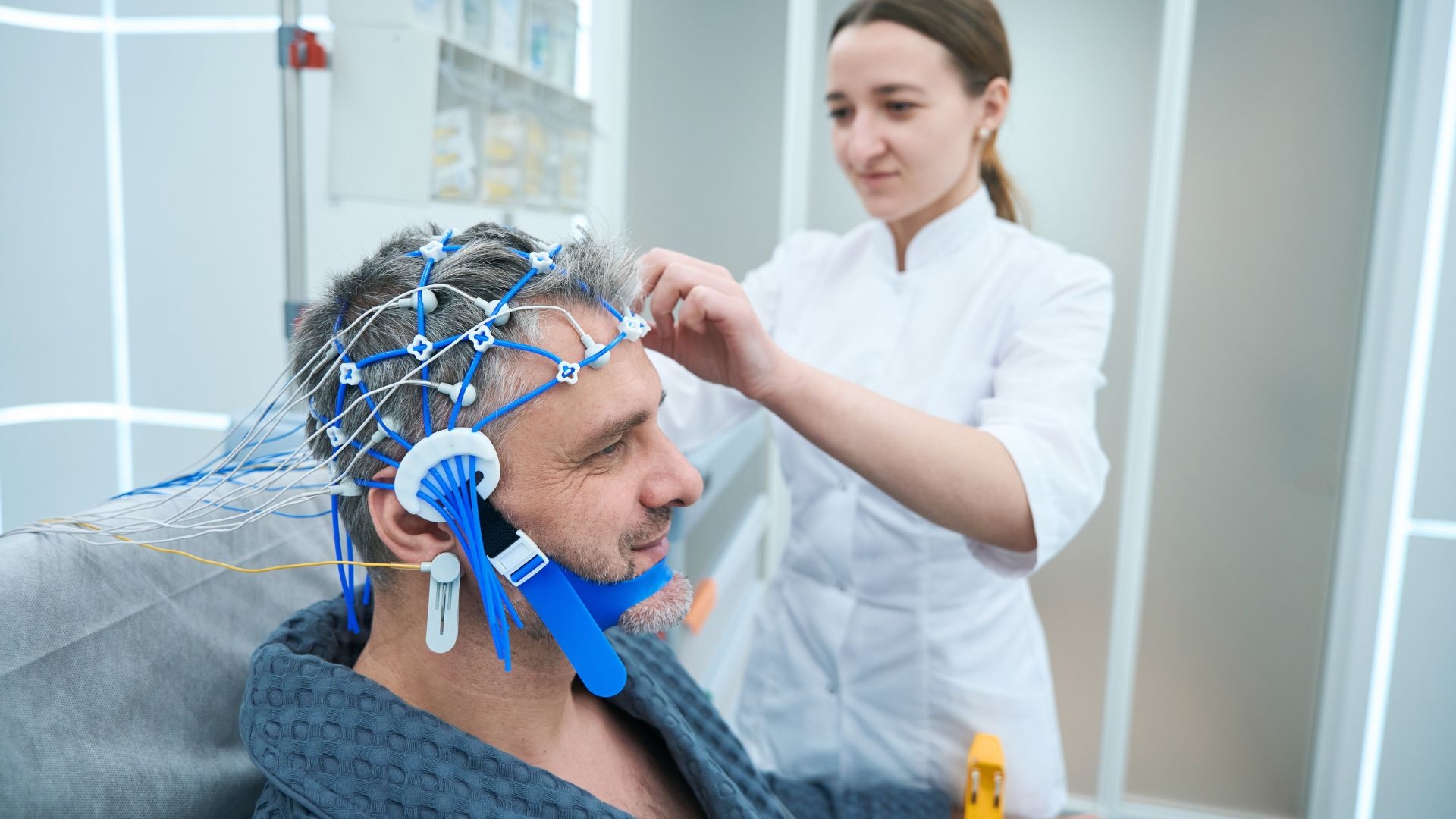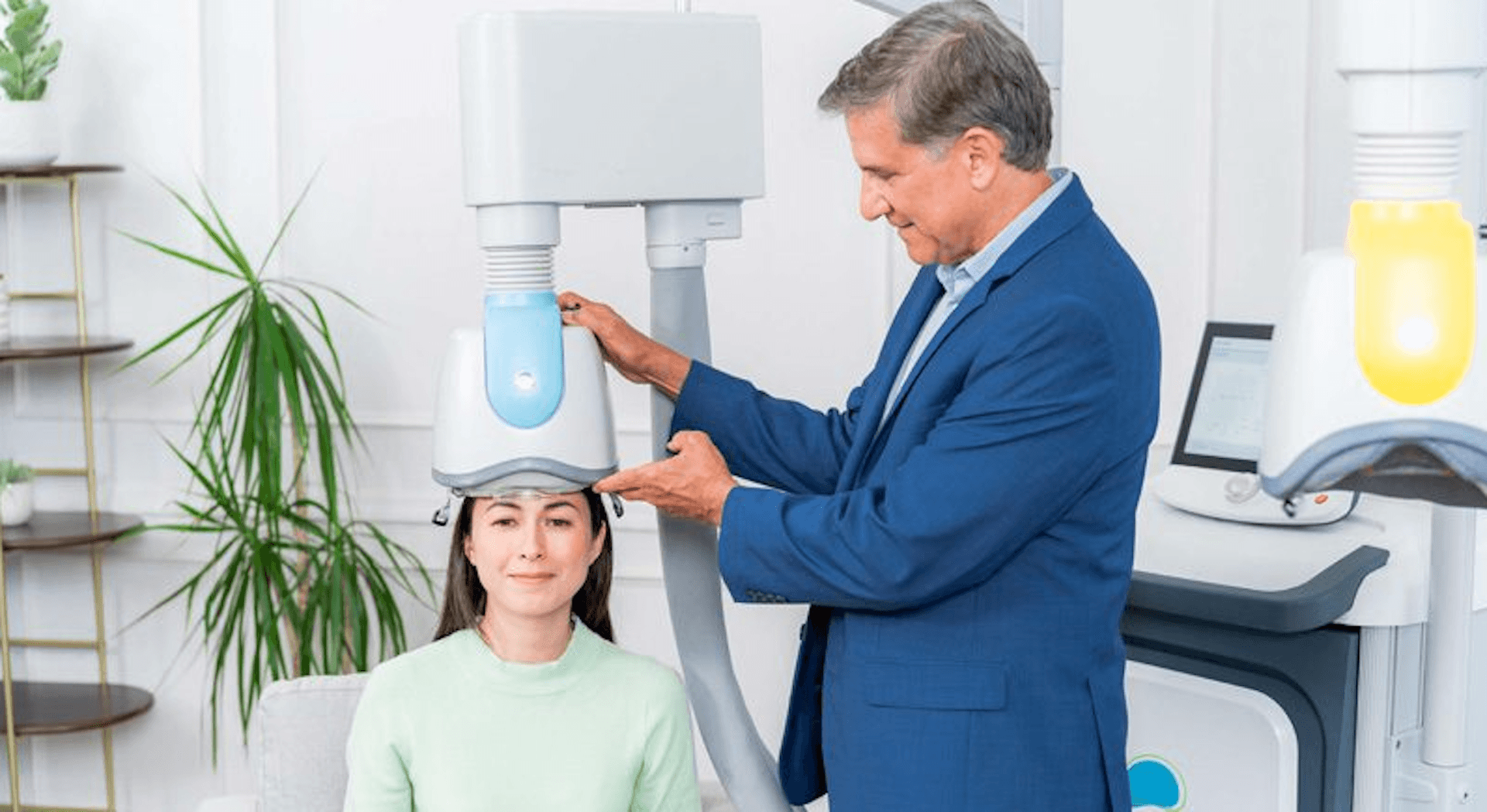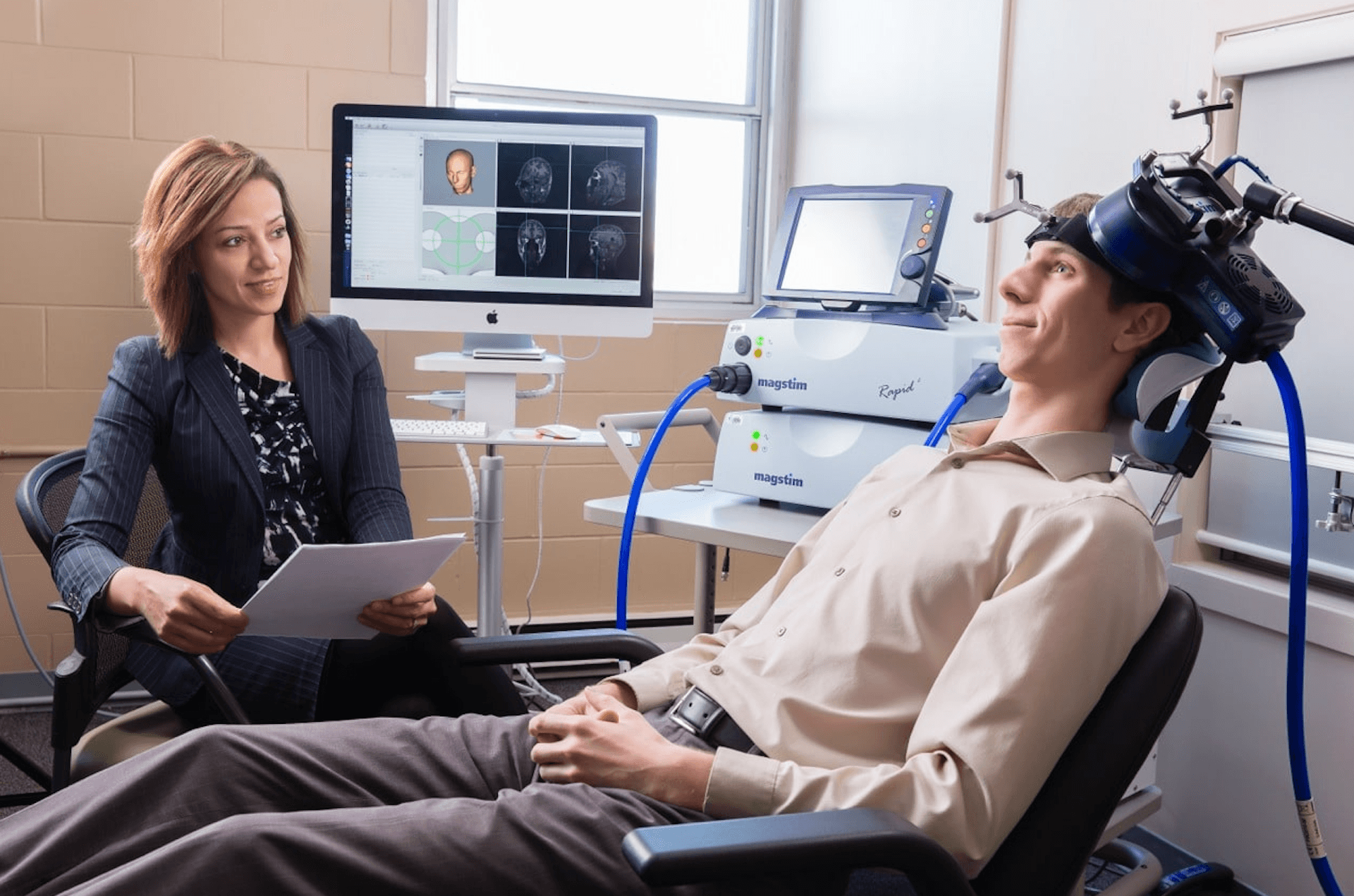Exploring TMS Therapy Options in Burbank


Explore the types of TMS therapy available in Burbank, from deep TMS to repetitive TMS. Learn how each option helps treat depression and other mental health conditions.
Mental health struggles and addiction can make everyday life feel exhausting, especially when traditional treatments don’t bring relief. Transcranial Magnetic Stimulation (TMS) offers a breakthrough solution by using magnetic pulses to stimulate brain regions linked to mood regulation, helping those with depression, anxiety, and substance use disorders.
At The Forge Recovery Center, we understand that every journey is unique, which is why we offer various types of TMS therapy tailored to your needs. Our goal is to provide compassionate, science-backed care that fosters lasting recovery. In this article, we will explore TMS therapy options available in Burbank.
Understanding TMS Therapy

Transcranial magnetic stimulation (TMS) is a non-invasive therapy designed to help individuals struggling with depression, anxiety, addiction, and other mental health disorders when traditional treatments fall short. Unlike medication, which affects the entire body, TMS specifically targets the brain regions responsible for mood regulation using electromagnetic pulses.
The therapy works by delivering repetitive magnetic pulses to stimulate underactive nerve cells in the brain, particularly in areas linked to depression and emotional control. Research shows that by activating these neurons, TMS helps rebalance brain activity, leading to improvements in mood, focus, and overall well-being.
How TMS Works
The TMS procedure is simple, painless, and performed on an outpatient basis. Here’s what to expect during a typical session:
A trained specialist places an electromagnetic coil on your scalp, usually near the prefrontal cortex—the brain region involved in mood regulation.
The coil delivers short magnetic pulses to stimulate nerve cells. These pulses are similar to those used in MRI machines and cause no discomfort.
Each session lasts about 20 to 40 minutes, depending on the type of TMS therapy used.
Patients usually undergo daily sessions for 4 to 6 weeks, with the exact schedule tailored to individual needs.
By repeatedly stimulating the underactive brain regions, TMS promotes neuroplasticity—the brain’s ability to form new connections and restore healthy activity. Over time, this can significantly reduce symptoms of depression, anxiety, and even cravings associated with addiction.
At The Forge Recovery Center, we integrate various types of TMS therapy into our personalized treatment plans, ensuring that you receive the most effective care based on your unique mental health needs.
Types of TMS Therapy

TMS therapy has evolved to include different approaches, each designed to address specific mental health needs. Below are the primary types of TMS therapy, including their unique benefits and applications.
Repetitive Transcranial Magnetic Stimulation (rTMS)
rTMS is the most common form of TMS therapy, primarily used to treat depression, anxiety, and PTSD. It works by delivering repeated magnetic pulses to targeted areas of the brain, stimulating nerve activity in regions responsible for mood regulation.
Procedure: Patients typically receive daily 20- to 40-minute sessions for 4 to 6 weeks.
Pulses: The therapy uses repetitive bursts of magnetic stimulation at specific frequencies to enhance neural function.
Effectiveness: Many patients begin to experience symptom relief within a few weeks, especially when paired with other forms of therapy.
Deep Transcranial Magnetic Stimulation (dTMS)
Deep TMS (dTMS) reaches deeper brain structures than rTMS, making it effective for severe or treatment-resistant conditions like major depression and OCD.
According to Cleveland Clinic, dTMS uses a specialized H-coil to stimulate regions beyond the cortex, including areas linked to compulsive behaviors.
Procedure: Similar to rTMS but with a different coil design that penetrates deeper brain tissue.
Applications: Often used for OCD, severe depression, and addiction treatment when standard treatments don’t work.
Benefits: Higher effectiveness for hard-to-treat mental health conditions without additional discomfort.
Accelerated TMS
Accelerated TMS condenses multiple treatment sessions into a shorter period, often delivering weeks’ worth of therapy in just a few days.
Procedure: Patients receive several sessions per day, usually over a span of 5 to 10 days.
Who It Helps: Those who need rapid relief, such as individuals struggling with severe depression, PTSD, or addiction-related cravings.
Benefits: Faster symptom reduction, making it a promising option for those who can’t commit to weeks of daily sessions.
Express TMS
Express TMS is a newer approach that significantly shortens session durations while maintaining effectiveness. It uses a patterned stimulation method called theta burst stimulation (TBS) to deliver pulses more efficiently.
Procedure: Sessions last as little as 3 to 10 minutes, compared to standard TMS sessions of 30+ minutes.
Who It Helps: Ideal for busy individuals who need a faster yet effective treatment option.
Effectiveness: Research suggests Express TMS works as well as traditional rTMS, offering a convenient alternative without compromising results.
At The Forge Recovery Center, we offer personalized TMS therapy plans to ensure you receive the right treatment based on your unique mental health journey.
Are You Struggling with Mental Health or Addiction?
We Can Help. Call Us Now!
CALL: 877-839-1772
TMS Therapy at The Forge Recovery Center
At The Forge Recovery Center, we recognize that no two individuals experience mental health challenges or addiction the same way. That’s why we take a personalized approach to TMS therapy, ensuring each person receives the most effective treatment for their unique needs.
Personalized Treatment Plans
Our TMS therapy begins with a comprehensive assessment to determine the best course of action for each individual. This includes:
A thorough evaluation of your mental health history, symptoms, and past treatments.
Collaboration with our team of psychiatrists, therapists, and addiction specialists to tailor TMS therapy to your specific condition.
Selection of the most appropriate type of TMS therapy—whether it’s rTMS, dTMS, Accelerated TMS, or Express TMS—based on your symptoms, treatment history, and goals.
Integration with Other Therapies

TMS therapy is most effective when combined with other evidence-based treatments. At The Forge Recovery Center, we integrate TMS into a comprehensive recovery plan, which may include:
Cognitive Behavioral Therapy (CBT): Addressing negative thought patterns while TMS improves brain function.
Medication-Assisted Treatment (MAT): In cases where medication is necessary, TMS can work alongside it to enhance recovery outcomes.
Holistic Therapies: Such as mindfulness, meditation, nutrition counseling, and exercise therapy to support overall well-being.
By combining cutting-edge TMS therapy with a whole-person approach, we help individuals not just manage symptoms—but regain control of their lives and build a sustainable path to recovery.
Looking for Effective TMS Therapy? We’re Here to Help
TMS therapy offers a safe, non-invasive solution for those struggling with depression, anxiety, and addiction-related challenges. With options like rTMS, dTMS, Accelerated TMS, and Express TMS, individuals can find the right treatment for their unique needs. At The Forge Recovery Center, we specialize in personalized, evidence-based care to help you or a loved one achieve lasting recovery. If you're ready to explore TMS therapy in Burbank, our team is here to guide you every step of the way. Contact us today and take the first step toward healing.
Are You Struggling with Mental Health or Addiction?
We Can Help. Call Us Now!
CALL: 877-839-1772





